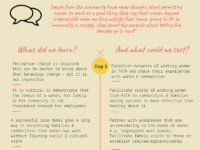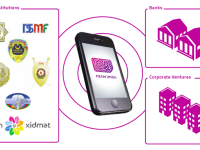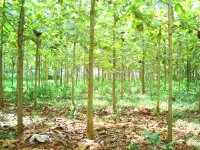High resolution satellite data were used to make a credible estimate of the number of brick kilns across the ‘Brick Belt’, helping to calculate the scale of modern slavery present. Brick kilns are high slavery-prevalent industries and before this work, the full scale of brick kilns and by proxy, slavery, was unknown, making action from the appropriate agencies difficult. This innovation provides data to help NGOs and governments fight modern slavery. This approach scales in time and space.
Innovation Tag: International Development
Case Study
Positive Deviance Pilot: strategies for enhancing women’s public participation in Pakistan’s…

UNDP wanted to understand what strategies women outliers or “positive deviants” in remote and deeply conservative areas which have minimal technology coverage, used to successfully join the workforce, become educated and serve their communities. Positive deviance is an experiential problem-solving approach that identifies locally designed solutions and ensures narratives of the outliers are understood before designing a programme; this is critical for designing behavioural change…
Illegal and unethical employment practices should not be tolerated where public money is being spent. The Code of Practice on Ethical Employment in Supply Chains calls on all organisations receiving public money directly or via contracts to ensure legal and ethical employment for workers in supply chains. The Code’s commitments are designed to combat modern slavery and exploitative practices and to promote responsible employment to improve workers’ lives in Wales and across the world.
Azerbaijan's Digital Trade HubIt is the first e-trade and e-commerce portal guaranteed by the government. The launch of Digital Trade Hub is a leading factor behind the country's 27% rise in non-oil exports, supporting local producers reaching external markets.
Case Study
National digital Identity and legally binding e-signatures based on Mobile-ID technology branded…

Asan Imza is the world’s fastest growing national digital identity in the form of Mobile-ID, which is secure, trusted and issued by the government of Azerbaijan. Based on PKI (a public key infrastructure) it is an irreplaceable tool empowering across all sectors, from public to private, including financial institutions and Mobile Network Operators, allowing to digitally verify your identity and create signatures equal to handwritten counterparts, regulated by law.
Two decades ago, 80% of Indonesia’s timber exports consisted of illegally-sourced wood. In order to combat this problem and to promote more sustainable forest management, the Government of Indonesia developed an innovative multi-stakeholder approach to ensure that wood products and raw materials would only be obtained or come from sources whose origins and management were legal and sustainable. Thus, the Timber Legality Assurance System (Sistem Verifikasi Legalitas Kayu – SVLK) was born.
The Poverty Stoplight (PS) seeks to activate the potential of families to eliminate multidimensional poverty beyond traditional income measures through a self-evaluation tool. PS is used by communities, businesses and governments to support families in assessing their poverty levels and implementing practical solutions, empowering the poor to be architects and protagonists in the process of eliminating poverty.

